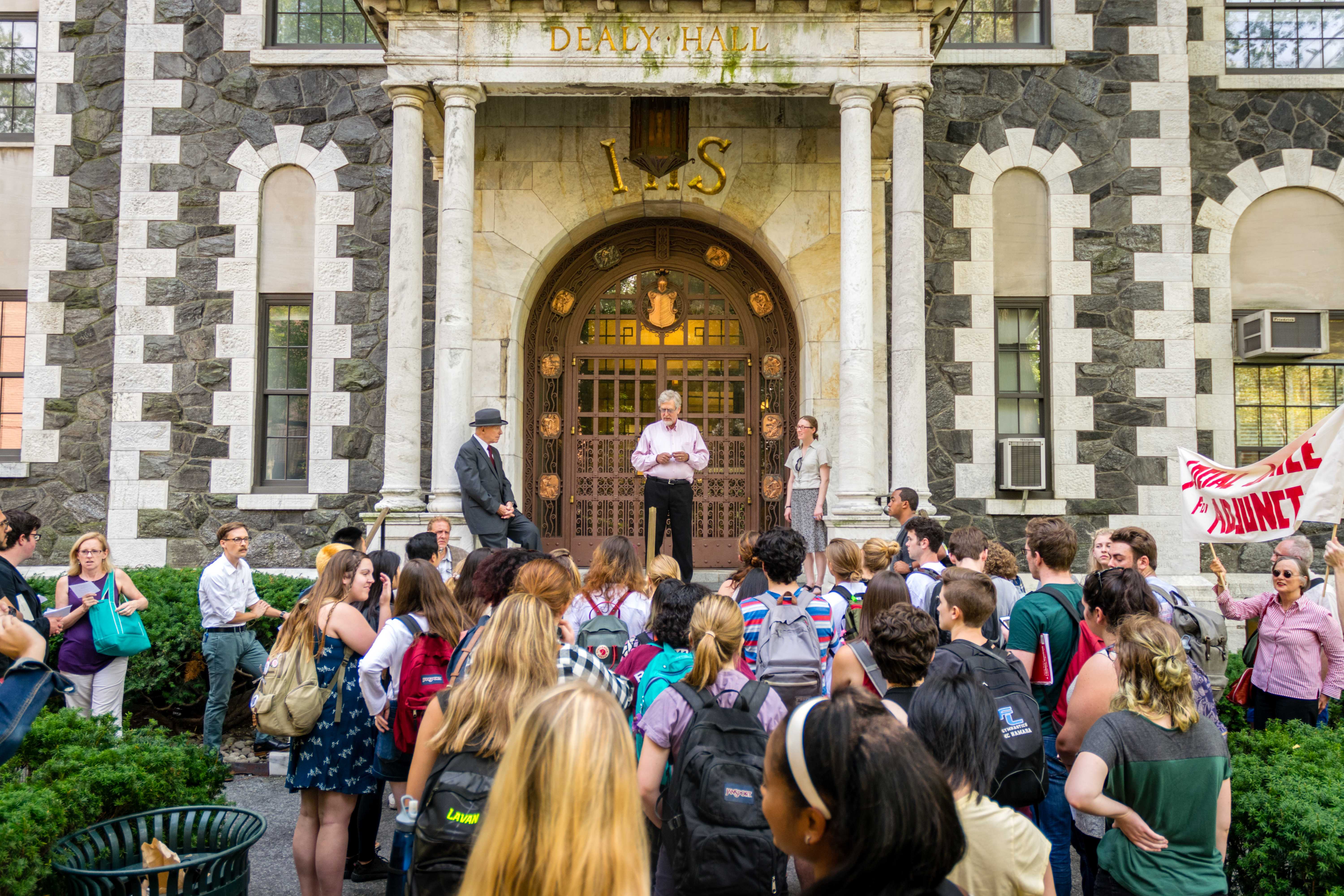By Aislinn Keely

Fordham University and the Service Employees International Union (SEIU) Local 200 United reached an agreement to hold a mail ballot election to unionize most adjunct and full-time, non-tenure track faculty sometime this fall, according to an email from the university. Fr. Joseph M. McShane, S.J., president of the university, made the announcement via a university-wide email last Wednesday in which he said he was pleased to make the announcement “following a summer of intense negotiations.”
The election is expected to be held some time in October, and will be overseen by the National Labor Relations Board (NLRB) according to McShane’s email. Any disputes during the election will be arbitrated by someone selected by the parties.
Eight hundred-fifty faculty members will be eligible to vote on the issue, which includes all 700 adjunct faculty and 150 full-time non-tenured track (FT-NTT) faculty according to the email. Adjunct professors within Gabelli School of Business and the Graduate School of Education will not be eligible. Fordham Law School faculty will not be participating in the election, as they have been unionized for many decades, according to Mickie McGee, Ph.D., Faculty Senate President.
SEIU must win a simple majority for the university and the union to begin negotiations for two separate collective bargaining agreements. “The University strongly encourages everyone eligible to vote in this election to do so,” said the email.
In a statement from SEIU, Hannah Jopling, adjunct professor of anthropology, said she hopes the campaign to unionize adjunct professors at Fordham inspires those at other universities.
“We are pleased that the university recognizes the need to implement socially just employment practices for its dedicated faculty,” said Jopling in the statement. “We hope our campaign can inspire contingent faculty and administrators at other universities to work together for the betterment of the entire community.”
Christopher Brandt, adjunct professor of English, credited some of their success to support from full time faculty and students.
“This milestone has been reached through hard work, and through the solidarity of the university’s full-time faculty, and especially of the students,” said Brandt. “Our agreement should serve as a reminder to all workers about what they can accomplish by standing together.”
The university agreed to remain neutral, according to the email. Students involved in advocating for unions are relieved by this decision, according to Gina Foley, FCRH ’18, a member of Fordham Students United (FSU), a group that has campaigned for the unionization of adjunct faculty on campus in the past.
“Often times employers launch anti-union campaigns and threaten employees to get them to vote against the union. I’m hopeful that the neutrality agreement means this won’t happen at Fordham, and we’ll have a smooth election process,” she said.
McGee said the Faculty Senate has supported what she calls “democratic right” of contingent faculty to hold an election since the beginning of their campaign to do so.
Adjunct unionization is one issue among others that led to the faculty passing a vote of no confidence in McShane, according to McGee.
The Faculty Senate does not include adjunct faculty.
Last spring, the university opposed adjunct faculty’s right to unionize. The university cited religious exemption through a 1979 Supreme Court ruling. In NLRB v. Catholic Bishop, the Supreme Court ruled the NLRB did not have the authority to assert jurisdiction over labor-management relations and practices in church-operated institutions.
McGee said the university’s ultimate decision was the Catholic one.
“That was a courageous turn as well, and his observation was correct: supporting the rights of workers to organize for their right to collective bargaining is a longstanding aspect of Catholic social teaching,” said McGee.
The public debate over the unionization of adjunct faculty at Fordham drew the attention of Mayor Bill de Blasio, who in the spring encouraged Fordham to allow the unionization of adjunct faculty at the university.
“We are delighted that Fordham is now acting in alignment with our core values as a Jesuit university with a social justice mission,” said McGee. “We all have our courageous students to thank for these gains.”







































































































































































































